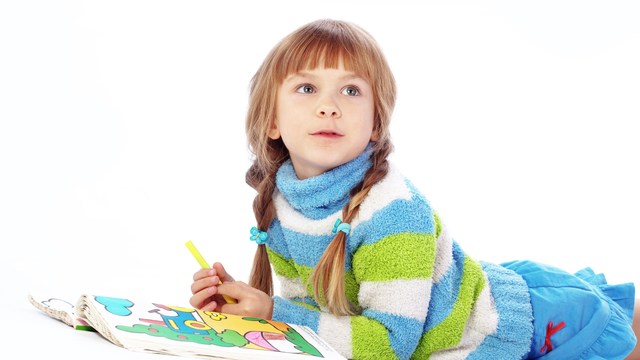 Alena Ozerova/PhotoSpin
Alena Ozerova/PhotoSpin
Whether you call them imaginary friends or invisible friends, they are a normal part of childhood development. It used to be that children with such friends were chastised or deemed to be emotionally disturbed or lonely.
But most of these theories that led to such treatment have since been disproved.
“It’s estimated between 25 and 45% of three to seven year olds create imaginary playmates. For most children, the friends are invisible, but some take the form of a doll, stuffed animal, or toy, such as a truck or airplane.” (3)
Marjorie Taylor and her colleagues at the University of Oregon interviewed 86 children and found that by age seven, about 37 percent of children have an invisible friend.
The invisible friend can be an object (e.g., a stuffed animal or toy) or a separate person. “[C]hildren who create a friend out of a personified object tend to have a parent-like relationship with their special toy friend, whereas children with invisible friends tend to imagine an egalitarian relationship, more like a real friend.” (1)
While imaginary friends are often thought of as a preschooler invention, it is surprisingly common among pre-teens as well. (3)
Why do Children Create Imaginary Friends?
It was thought, for many years — and still thought by some — that children invent imaginary friends because they’re lonely or have social problems. Research has since revealed otherwise.
In fact, children with imaginary or invisible friends tend to be less shy, laugh and smile more with peers, and are better able to empathize or identify with how someone else might think. (1)
Children who create an imaginary friend tend to be:
• Emotionally well-adjusted
• Intellectually skilled, but not necessarily of higher IQ
• Outgoing and social, not typically shy, isolated or withdrawn
• Advanced in understanding of social relationships
• Verbally skilled
• Able to take others’ perspectives to create complex play themes
• Able to focus on an idea and maintain good attention span
• Creative, but not significantly more creative than others
• More self-directed during unstructured time, preferring to play rather than watch television
• Able to enjoy fantasy play while also grasping the difference between real and pretend (3)
According to Karen Stephens of Eastern Florida State College, children create imaginary friends just because it’s fun. If there isn’t an actual playmate around, these children create one often with traits, emotions, and conversations all from the child’s own perceptions, experiences, and wishes.
Imaginary friends give children a sense of control, since they rarely disagree or refuse to play. "Children ... confide secret worries to them without fear of judgment, punishment, or abandonment.” (3)
Neglected or abused children may create an imaginary friend, but having an invisible friend isn’t a sign of neglect or abuse. Children may also create an invisible friend to replace a missing relationship in the event of a divorce or death of a parent. (3)
What should Parents Do about their Child’s Imaginary Friend
1. Relax and enjoy it. In fact, ask questions about the friend. This is the perfect opportunity to learn about your child’s current interests, wishes, fears or concerns. (1)
2. Don’t let the imaginary friend’s behavior become too disruptive.
3. Play along, but let the child take the lead in how you interact or include the imaginary friend in your play. Don’t add your own story to the one your child has created for the friend.
4. Don’t worry and don’t chastise. Again, an imaginary friend is an expression of creativity not a sign that there is something inherently wrong with your child.
Sources:
1) Growing Friendship: Imaginary Friends. Kennedy-Moore, Eileen. Psychology Today. Web. Nov 27, 2013.
http://www.psychologytoday.com/blog/growing-friendships/201301/imaginary-friends
2) Imaginary friends. Women’s and Children’s Health Network: Parenting and Child Health: Child and Youth Health.
http://www.cyh.com/healthtopics/healthtopicdetails.aspx?p=114&np=122&id=1979
3) Imaginary Friends: A Fun, Helpful, and Normal Part of Childhood. Stephens, Karen. Eastern Florida State College. Web. Nov 27, 2013.
http://www.easternflorida.edu/community-resources/child-development-centers/parent-resource-library/documents/imaginary-friends.pdf
4) Imaginary Friends: Should Parents Worry? Newman, Susan, PhD. Web. Nov 27, 2013.
http://www.susannewmanphd.com/?p=70
Reviewed November 29, 2013
by Michele Blacksberg RN
Edited by Jody Smith






Add a CommentComments
There are no comments yet. Be the first one and get the conversation started!